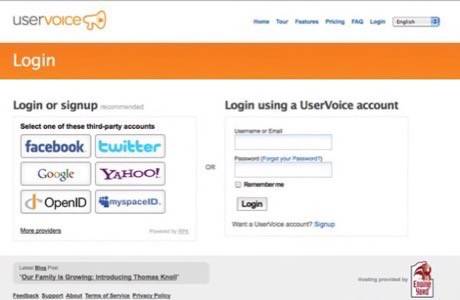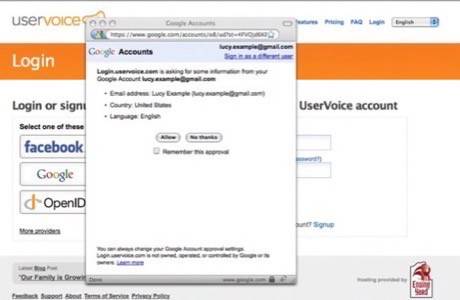This morning, Google announced two enhancements to their OpenID API. For end users, they have rolled out a popup-style interface for simpler logins with fewer redirects and less confusion. They also extended their Attribute Exchange to include more user data, such as first and last names, preferred language, country, and other, more personal information available via the Google Data API.

At the OpenID blog, David Recordon wrote this morning, “This means that Google users signing into sites… now have a much better user experience, one on par with Facebook Connect.” The screenshots below show the new login in action.


According to this morning’s entry from Yariv Adan on the Google Code Blog, the new UI “is designed to streamline the federated login experience for users. Specifically, it’s designed to ensure that the context of the Relying Party website is always available and visible, even in the extreme case where a confused user closes the Google approval window.”
The post continues with a specific use case. OpenID products company JanRain is using the new API in their RPX offering. The first step on the login page “is identical to that of the ‘full page’ version, and does not require any changes in the Relying Party UI,” read the blog.”
In addition to signing into sites using their Google accounts, users are also sharing specific data with the Relying Party website. The data shared can range from the user’s email, first and last name, preferred language, and country, to other information available through the Google Data API, including the user’s Contacts List, Web Albums, or Calendar.
Adan writes, “Google strongly believes that the data our users trust us with belongs to them and should always be available for them to use. By providing users with more secure means to share their data, they can benefit from a much more streamlined, personalized and socially relevant experience when they log in to trusted websites.”
The new process also allows a streamlined conversion process for Relying Party websites.

















